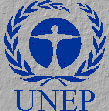 |
PRESS RELEASE
For use of the media only;
not an official document.
|
 |
Urgent action needed to
protect Europe's damaged soils
Bonn, 19 December 2000 -- The degradation of Europe's vital soil
resources will continue and even accelerate unless prompt action is
taken now, according to a
new report by the European Environment Agency and the United Nations
Environment Programme.
"The sustainable use of soils is one of Europe's greatest
environmental, social and economic challenges," said Klaus Töpfer,
UNEP's Executive Director. "Although often overlooked, soil is a
natural resource that is no less important to human well-being and the
environment than clean water and clean air."
The report, "Down to earth: Soil degradation and sustainable
development in Europe: A challenge for the XXI century," is being
released here today on the margins of the annual meeting of the United
Nations Convention to Combat Desertification. The 32-page report
outlines and quantifies the threats to Europe's soils and proposes
solutions.
"Soil degradation is part of the systematic abuse of the European
space, its territory and the natural resources involved," said Domingo
Jiménez-Beltrán, the European Environment Agency's Executive Director.
"This may become, in particular in the EU area, a main challenge for
sustainability and would require a common approach."
Soil provides a large number of different services which we depend
on and which we often are unaware of until it is too late.
Soils are being over-stressed by Europe's dense settlement patterns
and intensive economic activities and by acidification, erosion,
contamination, and changes in climate. Growing demand for food
production, living space, leisure and tourism facilities,
infrastructure and industrial production will only increase the
pressure.
In some parts of Europe, the degradation is so severe that it has
reduced the soil's capacity to support human communities and ecosystems
and resulted in desertification. Because it can take hundreds or
thousands of years to regenerate most soils, the damage occurring today
is for all purposes irreversible.
And soil degradation is not only occurring in the Mediterranean
countries (Annex IV of the UN Convention on Desertification). While 1/3
of Europe's soil (EEA 1999) may be affected (with over 150 M ha
suffering high erosion risk (EEA 1998)) and deterioration is critical
in the Mediterranean countries (e.g. Spain: 18% of land affected; loss
of 28 t/ha/y peak average for 90-95 in agricultural land) and around
the Black Sea (e.g. Ukraine 41% of agricultural land affected by
erosion risk in 1996), it also seriously affects Central Europe
(Germany was losing due to sealing 120 ha/day in 1997, Austria's
agricultural land lost reached 9 t/ha/y (EEA 1999)) and countries like
Ireland and Iceland; and it is expected that water erosion risks will
increase by 2050 in 80% of EU's agricultural land.
Note to journalists: Messrs. Töpfer and Jiménez-Beltrán will
brief the press at the Fourth Conference of the parties of the UNCCD in
Bonn on 19 December 2000. For more information, contact Michael
Williams at +41-22-917-8242 or +41-79-409-1528 or
michael.williams@unep.ch.
See also WEB SITES: htttp://www.eea.europa.eu; http://www.unep.ch



Document Actions
Share with others